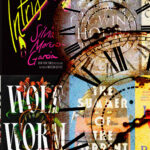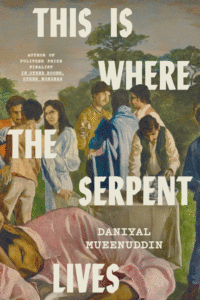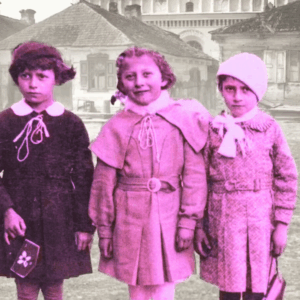
The Secret Bookstores of Buenos Aires
Visiting the City's Invisible Bookshops, Behind Closed Doors
A little known fact about Buenos Aires: it boasts the most bookstores per capita of any city in the world. Along the stretch of Avenida Corrientes leading west from the Obelisk, one window display after another boasts a spate of new releases, while stands in San Telmo’s historic market and along the walkways of the city’s parks offer a dizzying selection of used and rare books. There’s even a dimly-lit nook where shoppers can peruse worn volumes in English. The most opulent among these urban jewels is, of course, the Ateneo Grand Splendid on Avenida Santa Fe, a liberally gilded and frescoed former theater that houses both a vast array of titles and a café set apart from the store by the venue’s original velvet curtains.
But the story doesn’t end there. In recent years, a new kind of bookstore has taken root in Buenos Aires. It would be easy to miss these indier-than-indie shops, which have no storefront and don’t tend to advertise, but despite their relative invisibility, or perhaps because of it, these librerías a puertas cerradas have become a fixture of the city’s literary landscape.
The business “a puertas cerradas” (behind closed doors) is not itself a novel concept in Buenos Aires. The popularity of the speakeasy-style cocktail bar, coupled with the entrepreneurial ingenuity required following the 2001 economic crisis in Argentina, led to a boom in trendy micro-restaurants set up in living rooms across the city that offered a set menu to around twenty savvy diners each night. This unique combination of personal attention and curatorial care also informs the city’s private bookstores, which—in contrast to the enchanting chaos of New York’s Brazenhead—tend to focus on a specific literary niche and meet with their clientele individually or in very small groups.
 Librería Mi Casa
Librería Mi Casa
The pioneer who first applied this model to bookselling in Buenos Aires is a poet and former economist named Nurit Kasztelan. As she tells it, Mi Casa (an “atypical bookstore”) is the result of reading the right book at the right time: in a moment of acute professional ennui, she happened upon Clarice Lispector’s The Passion According to G.H. and was suddenly, absolutely certain that she needed to make a change. She quit her job the following week and gradually built a customer base selling books through a literary workshop she’d been running in her spare time. Then came the book fairs across Latin America and the United States, and the move to a beautiful apartment in Villa Crespo with a luminous internal patio she quickly filled with plants. The residence also happened to have a mezzanine set off to the side—just the thing for a bookstore nestled within a home. By 2011, Mi Casa had evolved into a thriving business, and it continues to grow. As for the initial risk involved in the project, Kasztelan calculated it like any good economist would: “What do I want money for? To use it. And what do I use it for? To buy books. That was the equation. What better way to have books around than by selling them?”
I ended up at Mi Casa, as many have, by word of mouth. Though it was a bit disconcerting at first to be ushered by a stranger down a long hallway and into a private residence, Kasztelan’s rapid patter and obvious passion for the books that surrounded us immediately made me feel, well… at home. We made our way up the white wooden staircase that leads to the bookstore. “I used to keep all the books together, but now I have my own shelves downstairs,” she said. “Even so, sometimes I still have to tell people, ‘no, that one’s not for sale.'”
The shop is modern and inviting: a white box filled with natural light and lined with shelves organized not by author or genre, but by publisher. This is another quality that sets Mi Casa apart: Kasztelan’s approach centers on building relationships not only with her clients, but also with some of the most interesting independent publishing houses in Argentina and abroad. As she pointed out in our most recent conversation, it’s not uncommon for her to return from a trip with a suitcase full of books, usually the complete catalog of one or two small presses that caught her eye (Lustra in Perú and Brutas in Chile, for example, as well as New York’s Ugly Duckling Presse). This is no small matter, given the way traditional distribution channels limit the circulation of books within Latin America, creating a situation in which it is often easier to publish a local edition of a title than it is to import copies from a neighboring country. “There are at least 300 books here you can’t get anywhere else in the city,” she notes with just a hint of pride.
As has happened each time I’ve visited Mi Casa, within moments of sitting down on one of the colorful ottomans that decorate the space I’m walled in by piles of books—each of which was presented with a quick gloss of the author, the plot, or why I’m sure to love it. About the latter Kasztelan rarely misses the mark, due in no small part to the fact that she sees herself not only as a salesperson, but also as a collaborator in her clients’ intellectual and creative endeavors. A purveyor of the right book at the right time.
 Amalia, Librería Mi Casa’s Bookstore Cat
Amalia, Librería Mi Casa’s Bookstore Cat
After selecting a few titles for immediate consumption and having my purchases approved by Amelia, the Persian cat whose role in the shop falls somewhere between mascot and assistant, I was off to the next stop on my tour. In the years after Mi Casa first appeared on the scene, similar spaces began popping up around Buenos Aires, each with its own curatorial slant and its own way of engaging the community. Los Libros del Vendaval in Collegiales specializes in picture books and hosts regular child-friendly readings, while Natalia Romero of A Cien Metros de la Orilla sells contemporary fare and runs writing workshops out of her turn-of-the-century residence in San Telmo. (She’s also likely to offer you mate and suggest you pick out a notebook or pen so you can set about writing your own masterpiece.)
La Vaca Mariposa, the latest project of Venezuelan journalist Adriana Morán Sarmiento, is housed in an alcove of her vibrantly painted apartment in Palermo. Though the books that line its shelves predictably favor independent presses and contemporary writing, what makes this selection unique is its emphasis on work from the Caribbean and what its proprietor refers to as “an outsider’s take on Argentine literature.” Another unique feature of the place: in a nod, perhaps, to the culinary brethren of these private bookstores, Morán organizes regular “literary dinners” in the space, during which a small group of bibliophiles get to sit down to a home-cooked meal with prominent local writers like Washington Cucurto and Natalia Litvinova.
As for the place of these domestic depositories in the city’s cultural ecosystem, Morán sees ventures like her own as a complement to traditional bookstores, rather than as their competition. “There are small and even some larger bookstores where you can walk in and feel like you’re being taken care of, where you know the bookseller and can ask questions, and that’s great,” she said on the rainy August afternoon of our first encounter. “But it’s still a commercial space, and that takes something away from the experience… Despite the differences [among private bookstores], what we all have in common is this, what we’re doing right now: sitting, talking, reading over a cup of coffee, feeling at home.” Morán went on to say that she hoped to see at least one traditional and one private bookstore in every neighborhood of the city some day, and I couldn’t help but smile at the thought that perhaps her dream was closer than she imagined, that it was just a matter of ringing the right doorbell.
Photographs by Mauro Alfieri.
—> CORRECTION: An earlier version of this story spelled the cat’s name as Amalia, rather than Amelia. We apologize to the cat.
Heather Cleary
Heather Cleary’s translations include Roque Larraquy’s



















